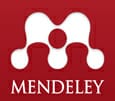Determinant That Effect on Fraud Detection Capabilities by Auditors
Main Article Content
Abstract
This study aims to determine the effect of professional skepticism, auditor experience, whistleblowing and red flags on the ability to detect fraud by the auditor. The population in this study is the auditor who works at the Public Accounting Office (KAP) in the South Jakarta area. The sampling technique uses convenience sampling. This research data was obtained from a questionnaire that had been previously shared with the auditors working at the Public Accounting Firm in the South Jakarta area. The type of data used is primary data. The method of data collection is a survey, using a questionnaire. The analysis tool uses multiple linear regression. The results showed that the experience of auditors, whistleblowing and red flags did not significantly influence the ability of fraud detection by auditors, whereas professional skepticism had a significant effect on the ability to detect fraud by auditors. The value of the determination coefficient obtained is 0.236, which means that the independent variables used in this research model are able to explain 23.6% variation in the dependent variable and the remaining 76.4% is explained by other variables outside of this study.
Article Details

This work is licensed under a Creative Commons Attribution 4.0 International License.

International Journal of Business Studies by Sekolah Tinggi Manajemen IPMI is licensed under a Creative Commons Attribution-ShareAlike 4.0 International License.
Authors who publish with this journal agree to the following terms:
1. Authors retain copyright and grant the journal right of first publication with the work simultaneously licensed under a CC BY-SA Creative Commons Attribution-ShareAlike 4.0 International License that allows others to share the work with an acknowledgement of the work's authorship and initial publication in this journal.
2. Authors are able to enter into separate, additional contractual arrangements for the non-exclusive distribution of the journal's published version of the work (e.g., post it to an institutional repository or publish it in a book), with an acknowledgement of its initial publication in this journal.
3. Authors are permitted and encouraged to post their work online (e.g., in institutional repositories or on their website) prior to and during the submission process, as it can lead to productive exchanges, as well as earlier and greater citation of published work.
4. Copyright Transfer Agreement Form can be downloaded HERE.











